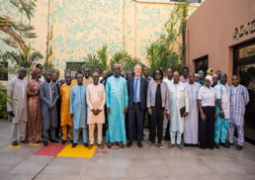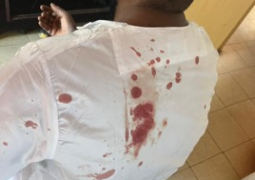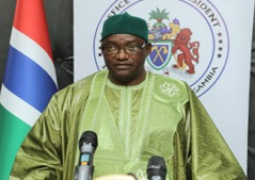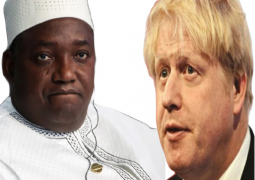
Facing Defence Counsel L.S. Camara for cross-examination, the witness whose identity is concealed agreed that he is a seasoned intelligence officer and that it’s part of his responsibility to gather evidence on matters of concern.
“And you told this court that when you first spoke with the 1st accused at Joiner Services Headquarters, he told you he would become President,” Counsel Camara said to the witness, which the witness affirmed, further conceding that it was a starting point to put him in the spotlight and gather evidence concerning the first accused.
“And it is correct that thereafter, you had a couple of conversations with him,” the Counsel asked.
“That was after his arrest. There was no conversation until after his arrest,” the witness clarified.
“Did you record any of those conversations after his arrest,” counsel asked again, but the witness answered in the negative.
He elaborated: “I have two reasons. One, I was not having any authorized gadgets to record him as telephone recording had the tendency to change voice and it's not a standardized intelligence tool.”
“Also, recording him at that time would raise suspicion. Knowing that I am an intelligence officer, if he sees me with a phone, it may raise suspicion.”
Quizzed whether as an intelligence officer, you show people your recording gadget, the witness responded in the negative.
The witness also admitted that there was no recording of the conversation between him and the first accused person Sanna Fadera, and that he was not aware of any recording of any conversation between the first accused and any other individual.
The undercover state agent agreed with the counsel that apart from what he said the first accused allegedly said to him, there was also nothing else recorded.
“I am putting it to you that the accused person never spoke to you in connection to any coup d’état anywhere in the world, including in The Gambia,” Counsel said.
In response, the witness said that when the phone was put on loudspeaker during the first accused’s telephone call with Momar Jobe, the first accused was heard saying so and did also say so during the interview following his arrest.
The Counsel asked: “Those are the conversations we are talking about. Why didn't you record him?”
The witness said: “As I said, I wasn't with any authorized gadgets to record him and during the interview and after his arrest, the use of any phone would raise suspicion.
As put to him by the counsel, he agreed that he needed evidence as an intelligence officer, adding that depending on the time and circumstances, he needed to go the extra mile to get evidence.





